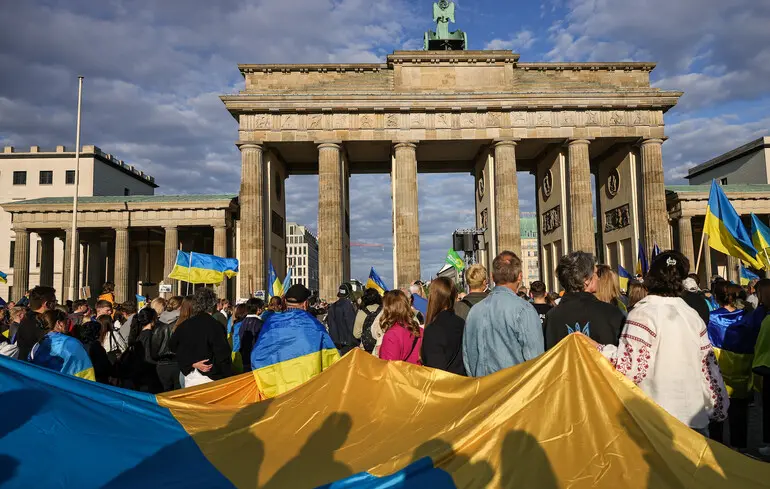International Celebrations of Ukraine’s 34th Independence Anniversary: Inspiration and Global Support

On August 24th, Ukraine and its international communities marked a significant milestone — the 34th anniversary of gaining independence.
This celebration symbolized sovereignty and national unity, serving also as a platform for numerous global events aimed at showing support for Ukraine’s ongoing struggle for freedom.
Across continents, Ukrainian diaspora groups, officials, politicians, artists, and civic activists organized a variety of commemorative activities — from traditional parades and prayer services to cultural concerts and solidarity demonstrations.
In Paris, a large celebratory march took place through the city’s main streets, illuminating the city with yellow and blue flags and lighting iconic landmarks with Ukrainian colors.
Ukrainian pavilions and cultural exhibitions showcased traditional costumes, attracting attention from passersby.
The Eiffel Tower was also lit in Ukraine’s national colors, emphasizing the importance of this date in the global consciousness.
Over 70 French cities participated in solidarity actions, with participants raising national flags, organizing marches, and publicly voicing their support for Ukraine’s sovereignty.
French Member of the European Parliament Raphael Glucksman addressed the crowd in Paris, highlighting the importance of unity and support in safeguarding Ukrainian independence.
Similar large-scale celebrations unfolded across Europe and beyond.
In Switzerland and Liechtenstein, the World Day of Prayer for Ukraine was observed, with churches and community centers hosting prayers for peace, freedom, and prosperity.
Ukrainian clergy and diplomats called for unity and continued support in the fight for a free Ukraine.
Globally, Ukrainian expatriates and organizations formed human chains and conducted symbolic acts demonstrating solidarity and hope for peace.
In Greece, the anniversary was marked by church services and public gatherings in Athens, emphasizing prayers for peace and victory.
In Germany, extensive commemorations included cultural events, concerts, and rallies in cities like Saarbrücken, Hamburg, and Mainz, where Ukrainian communities continued to express their commitment.
Notably, German and Ukrainian artists collaborated on translating and performing popular songs like “Oй у лузі червона калина” in German, symbolizing cultural unity.
Italy hosted a solemn religious service at the Basilica di Santa Sofia in Rome, followed by a community march and the laying of flowers at the monument of Taras Shevchenko — a powerful tribute to Ukraine’s independence and cultural heritage.
Similar events took place in Greece and Azerbaijan, where religious and cultural gatherings fostered dialogue for peace, resilience, and national unity.
In Baku, a ceremony at Shevchenko’s monument brought together diplomats, community members, and officials, reaffirming support for Ukraine’s sovereignty.
These international celebrations demonstrated that Ukraine’s independence remains a cherished and resilient value, and worldwide gestures of solidarity continue to bolster its fight for freedom and territorial integrity.

